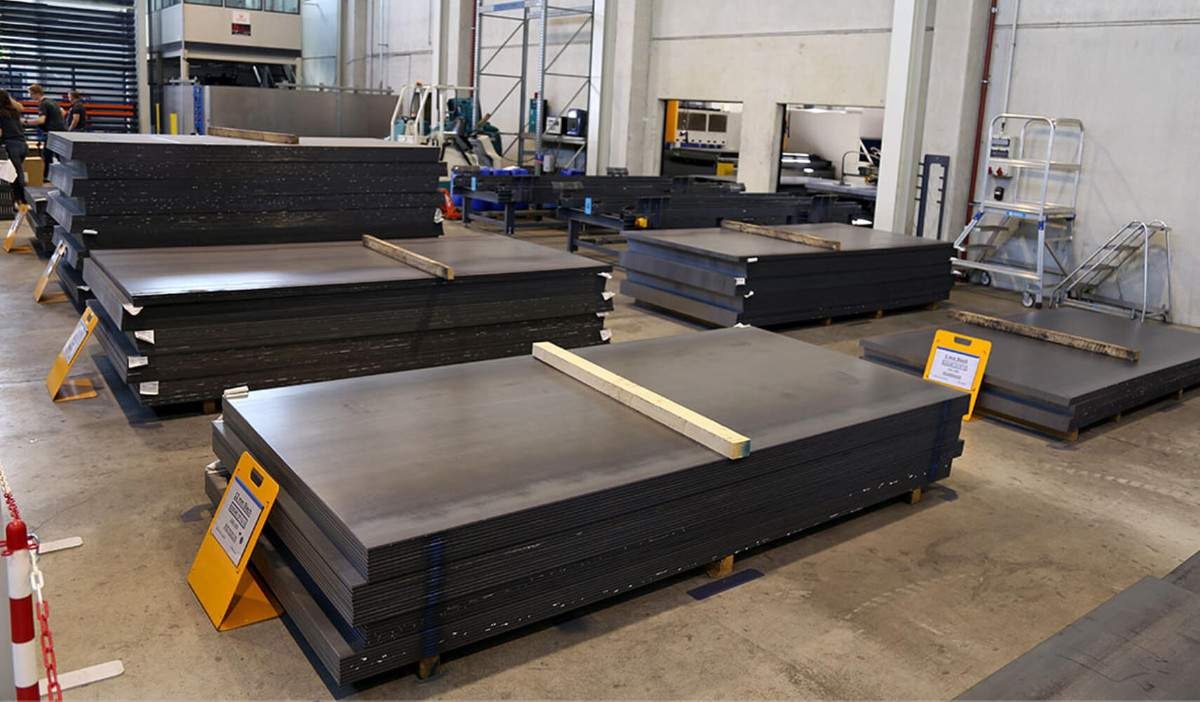In industrial and engineering sectors, material selection is crucial for ensuring safety, efficiency, and durability. SA537 Class 1 Plates have emerged as one of the most reliable choices for pressure vessels, reactors, and other high-stress applications. This guide explores the key properties, benefits, and applications of these plates to help engineers, designers, and industry professionals make informed decisions.
Introduction to SA537 Class 1 Plates
SA537 Class 1 Plates are high-strength, low-alloy steel plates primarily used in the fabrication of pressure vessels and boilers. Their composition and manufacturing process ensure exceptional toughness, weldability, and resistance to high-pressure environments. These plates conform to ASTM A537 standards, guaranteeing uniformity and reliability across various industrial applications.
Chemical Composition
The chemical composition of SA537 Class 1 Plates is designed to offer a balance of strength and ductility. Key elements include:
- Carbon (C): Enhances hardness and strength but is controlled to maintain weldability.
- Manganese (Mn): Improves toughness and wear resistance.
- Phosphorus (P) & Sulfur (S): Kept minimal to reduce brittleness.
- Silicon (Si): Adds strength without compromising ductility.
This carefully controlled composition ensures the plates can withstand extreme temperatures and high-pressure environments without deforming.
Mechanical Properties
The mechanical properties of SA537 Class 1 Plates make them ideal for critical industrial applications:
| Property | Typical Value |
|---|---|
| Yield Strength | 27-34 ksi |
| Tensile Strength | 70-90 ksi |
| Elongation | 20-22% |
| Impact Toughness | 15-20 ft-lb at room temp |
| Hardness (Brinell) | 150-180 HB |
These values ensure that SA537 Class 1 Plates can handle both static and dynamic loads effectively, making them suitable for pressure vessels, storage tanks, and reactor components.
Key Features of SA537 Class 1 Plates
- High-Strength Steel: Ensures resistance to deformation under high-pressure conditions.
- Excellent Weldability: Compatible with common welding methods, including TIG, MIG, and arc welding.
- Impact Resistance: Maintains toughness even at lower temperatures.
- Uniform Quality: ASTM certification ensures consistency across batches.
- Versatile Applications: Suitable for a wide range of industrial projects, from boilers to chemical storage vessels.
Benefits of Using SA537 Class 1 Plates
The advantages of incorporating SA537 Class 1 Plates in industrial projects include:
- Enhanced Safety: High tensile strength and toughness reduce the risk of failure in high-pressure systems.
- Durability: Long-lasting performance even in extreme temperature and pressure conditions.
- Cost Efficiency: Reduced maintenance and replacement frequency due to superior material performance.
- Ease of Fabrication: Good machinability and weldability simplify the manufacturing process.
- Compliance: ASTM certification ensures adherence to industry safety standards.
These benefits make SA537 Class 1 Plates a preferred choice for engineers and designers aiming for both reliability and cost-effectiveness.
Common Applications
SA537 Class 1 Plates are widely used in industries where high strength and toughness are crucial. Common applications include:
- Pressure Vessels: Ideal for high-pressure boilers and chemical reactors.
- Storage Tanks: Used for both cryogenic and high-temperature storage systems.
- Power Plants: Components in nuclear and thermal power plants often utilize these plates.
- Chemical Industry: Reactors and heat exchangers benefit from the plate’s resistance to corrosion and pressure.
- Marine Applications: Engine housings and storage containers in shipbuilding.
Fabrication and Welding Tips
To maintain the integrity of SA537 Class 1 Plates, consider the following during fabrication:
- Preheating: Reduces the risk of cracking during welding.
- Controlled Welding: Use appropriate filler materials to match the plate’s chemical composition.
- Stress Relieving: Post-weld heat treatment ensures minimal residual stress.
- Cutting Techniques: Plasma or laser cutting is recommended for precise fabrication.
Following these guidelines ensures the plates retain their mechanical properties and long-term performance.
Quality Standards and Certification
Choosing SA537 Class 1 Plates from certified suppliers guarantees:
- ASTM compliance for material specifications.
- Traceability for all batches.
- Consistent mechanical and chemical properties.
- Reduced risk of material failure in critical applications.
Look for suppliers that provide mill test certificates (MTCs) to ensure authenticity and quality assurance.
Comparison with Other Plates
When compared with other pressure vessel steels, SA537 Class 1 Plates offer:
| Feature | SA537 Class 1 | SA516 Gr.70 | A36 Steel |
|---|---|---|---|
| Yield Strength | Higher | Moderate | Lower |
| Impact Toughness | Excellent | Good | Moderate |
| Weldability | Excellent | Very Good | Good |
| Ideal for Pressure Vessels | Yes | Yes | No |
| Cost | Moderate | Low | Low |
This shows that for pressure-critical applications, SA537 Class 1 Plates are superior in strength, safety, and reliability.
Storage and Handling Guidelines
Proper storage and handling ensure the longevity of SA537 Class 1 Plates:
- Keep in Dry Conditions: Prevents surface rust and corrosion.
- Avoid Direct Contact with Harsh Chemicals: To maintain surface integrity.
- Use Lifting Equipment: Avoids bending or structural damage.
- Regular Inspection: Check for scratches, dents, or signs of wear before fabrication.
Conclusion
SA537 Class 1 Plates have become a staple in industrial projects requiring high pressure and temperature resistance. Their combination of strength, weldability, and impact toughness ensures long-lasting performance in critical applications.
Whether for pressure vessels, power plants, or chemical reactors, these plates provide unmatched reliability, safety, and cost-efficiency. Selecting high-quality SA537 Class 1 Plates ensures that your industrial projects meet both performance standards and safety regulations.
